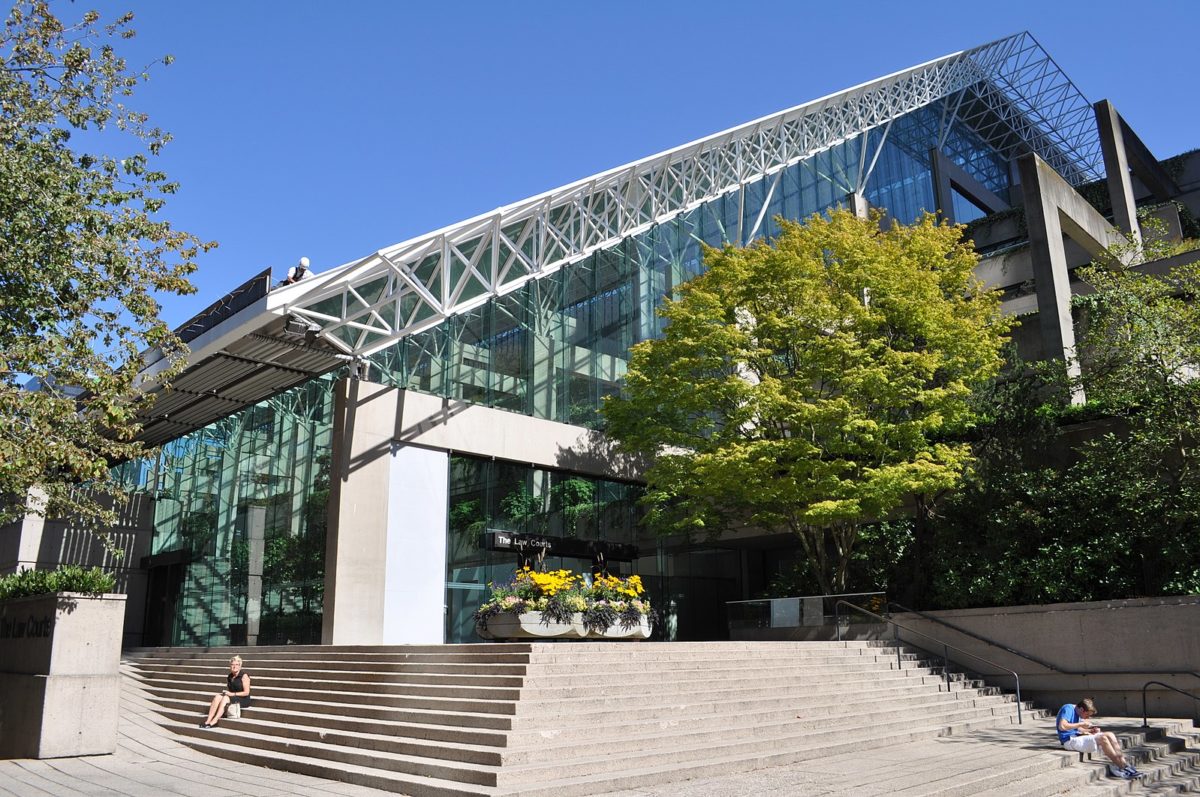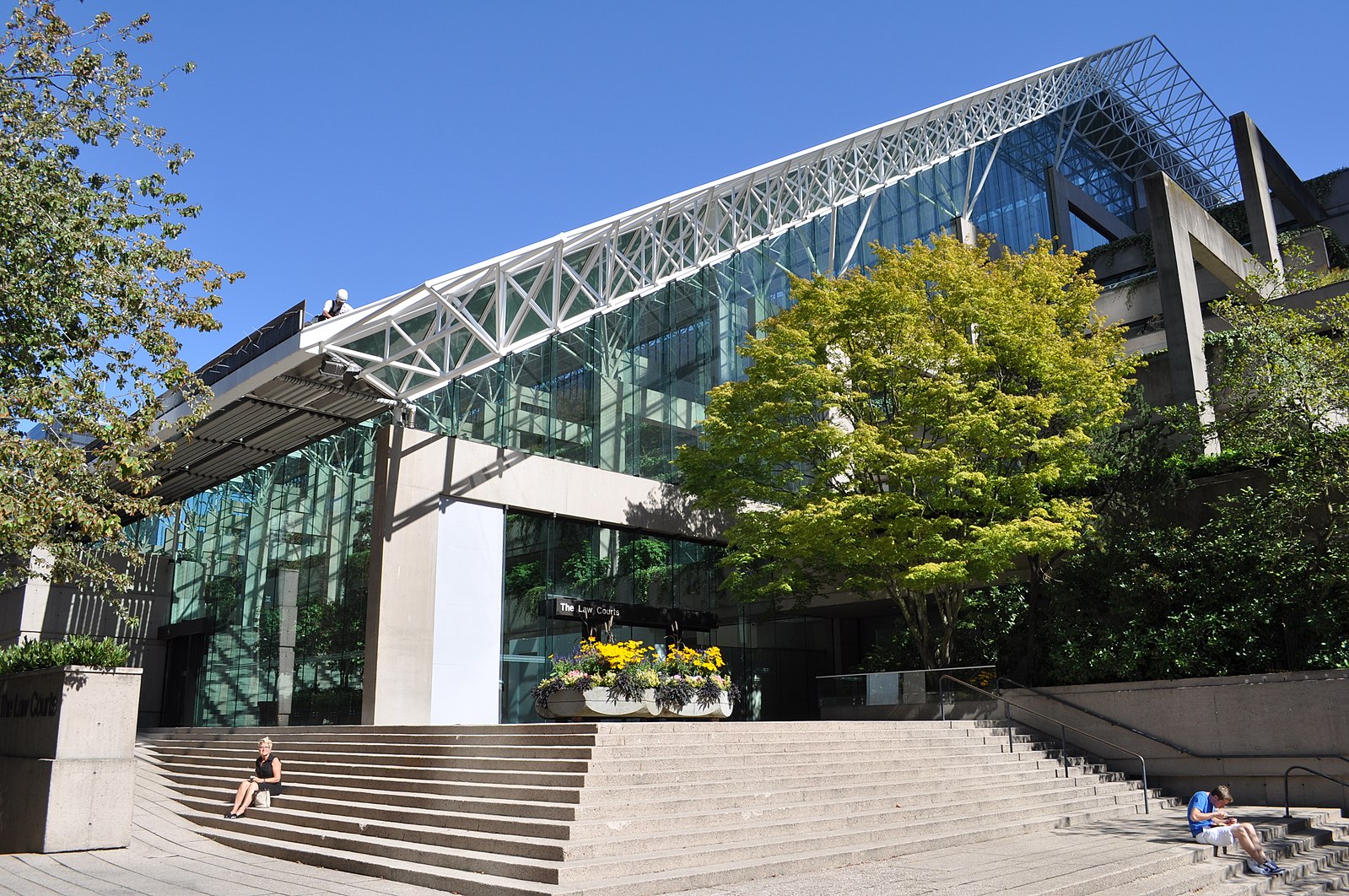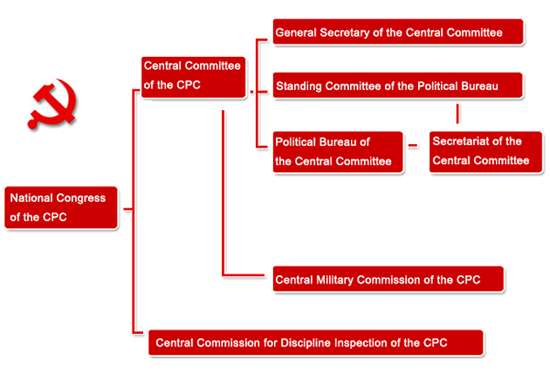
Bob Mackin
A judge in Vancouver says a family law case can proceed in British Columbia Supreme Court between a rich landowner from China and his estranged wife, who is a former senior official in the Chinese Communist Party.
Justice Margot Fleming ruled on May 26 that she was not concerned that Bin Bin Tang was “forum shopping” in her dispute with Wei Chang. Tang had made an urgent application for a court hearing during the coronavirus pandemic, claiming urgent need for spousal support. Cheng wanted the case stayed.

Law Courts Vancouver (Joe Mabel)
“I do not regard proceeding in this forum as contrary to the fair and efficient working of the Canadian legal system as a whole,” Fleming ruled
“Having failed to demonstrate China provides an alternative forum, it is simply not possible for Mr. Cheng to establish that China is in a better position to dispose of the litigation fairly and more efficiently.”
Fleming’s decision said the parties were married in December 1991 in China and separated in October 2015. They have one son born in June 1994.
Tang claimed they accumulated assets worth $100 million while married, but Cheng estimated it to be in the range of $40 million to $48 million. Almost all of the assets are in China, except accounts in Hong Kong and Canada and a house worth nearly $4 million on the Andover Place cul-de-sac in West Vancouver’s posh British Properties.
In her affidavit, Tang said she worked in a senior position in China’s Ministry of Supervision, in the Communist Party’s powerful Central Commission for Discipline Inspection, which is intended to stop graft inside the party.
In his sworn statement, Cheng described Tang’s position as Deputy Chief of the Chinese Communist Party.
In 2007, Tang and their son immigrated to Canada where he completed high school. Tang became a Canadian citizen.

CCP organization chart. (China.org)
The estranged couple could not agree where Tang lived from 2012 to 2014. Cheng claimed Tang returned to China in 2012 after her son went to study in New York. But Tang maintained that since 2014, she had been living at the house on Andover Place after overseeing its construction.
Cheng claimed that he shared a residence with Tang in Nantong City, China when they separated. Since then, she had been living in the same complex with her family.
According to Cheng, based on information from their son, Tang had only visited Vancouver for one or two months a year since their separation.
Tang’s most recent affidavit claimed she has lived regularly in West Vancouver since 2012, but is stranded in China for the time being and does not have the resources to live in West Vancouver unless she can obtain financial relief from Cheng.
The parties battled in court in China since 2016. Tang’s first of two divorce filings was dismissed because of the prospect of reconciliation. She claimed she discovered Cheng having an affair with another woman, with whom he fathered two children, and used family assets to provide them a luxurious lifestyle.
The parties went to trial in China over four days in 2017 and 2019. In November last year, Tang filed the family claim lawsuit in B.C. and was granted a restraining order. The Chinese court rendered its judgment on Dec. 25, 2019, but Tang claimed it would cost too much to translate all 33 pages.

Ambleside in West Vancouver (Mackin)
The divorce was granted and Tang awarded 70% of the disclosed real estate properties and bank accounts, “based on a finding Mr. Cheng had fraudulently transferred away or dissipated at least $15.5 million and committed adultery,” Fleming wrote.
“Mr. Cheng also deposes that the Chinese court reapportioned the Chinese family property largely in favour of Ms. Tang. He states she received approximately $42 million whereas he received less than $1 million, estimating her share at approximately 97% of the remaining net assets,” said Fleming’s judgment.
Tang was hospitalized and underwent back surgery in April and claims to suffer several conditions that cause daily pain. The 52-year-old also claimed to be too old to work in China, which mandates retirement for women from some jobs beginning at age 50.
Tang also claimed to have been out of the workforce for three decades, despite giving evidence that she had worked until 2007.
Support theBreaker.news for as low as $2 a month on Patreon. Find out how. Click here.











